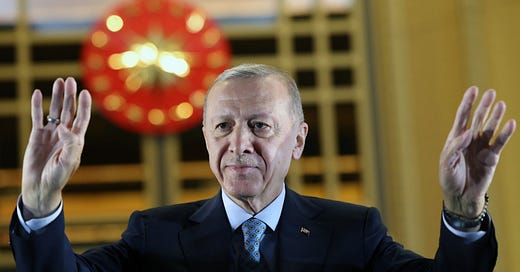Türkiye recently has emerged to play an important role in the construction of an alternative pluripolar world, in cooperation with China and Russia as well as key powers in the Middle East and progressive governments in Latin America and the Caribbean, thus breaking its previous subordination to Western geopolitical interests. The architect of this turn has been President Recep Tayyip Erdoğan, who has been in power since 2003, first as Prime Minister and later as President.
In the recent presidential and parliamentary elections, the people have affirmed their support for this turn to the East and the South. In the first round of the elections on May 14, Erdoğan received 49.52% of the votes cast. His chief rival, Kemal Kılıçdaroğlu, won 44.8% of the vote, with Sinan Oğan, the candidate of the ATA Alliance, receiving 5.2%. Over 64 million citizens, including overseas voters, were eligible to vote, a…



